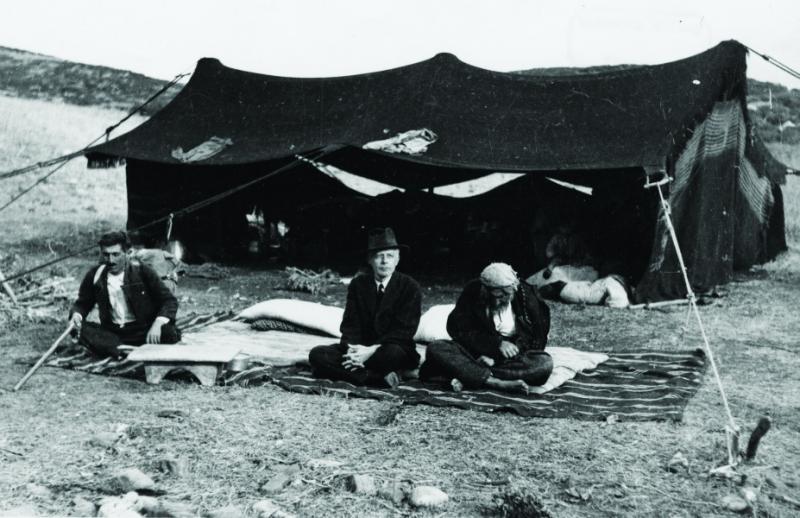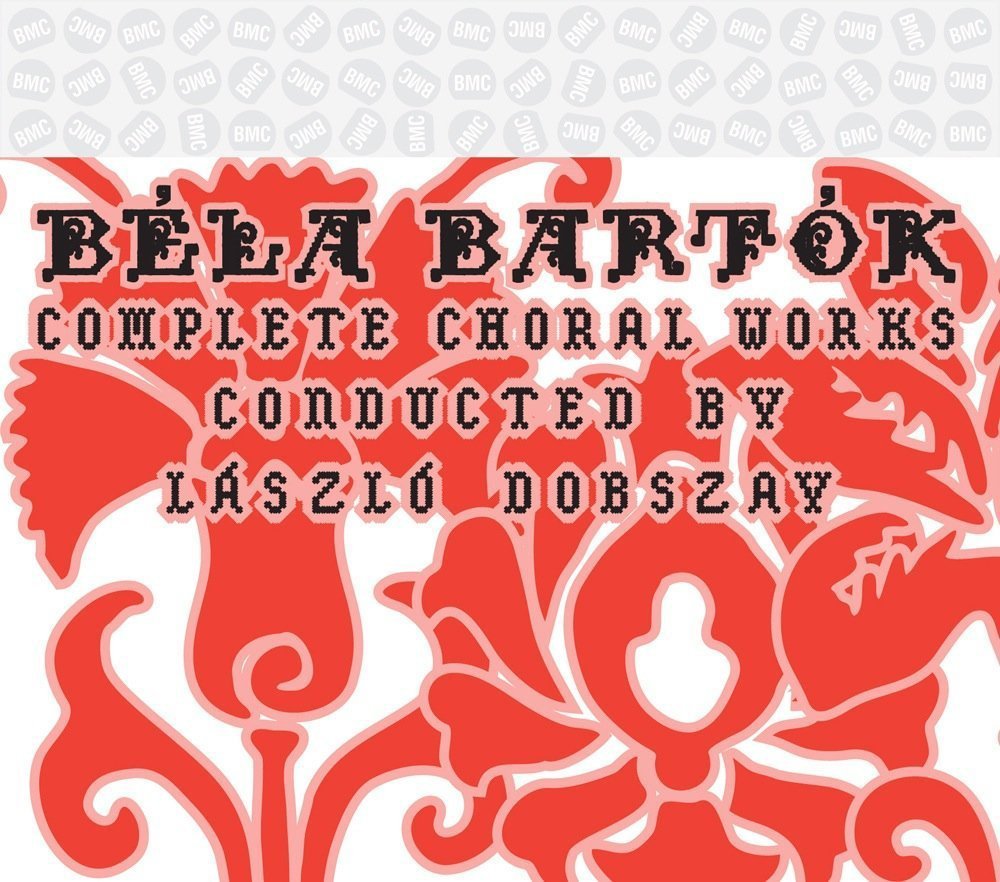Classical CDs Weekly: Bartók, Poulenc, Mr McFall's Chamber | reviews, news & interviews
Classical CDs Weekly: Bartók, Poulenc, Mr McFall's Chamber
Classical CDs Weekly: Bartók, Poulenc, Mr McFall's Chamber
Rarely heard choral music from Hungary, sparky Gallic pianism and some Finnish tangos

 Bartók: Complete Choral Works Choir of selected students of the Liszt Academy and the Eötvös Loránd University/László Dobszay, with Zoltan Kocsis (piano) (BMC Records)
Bartók: Complete Choral Works Choir of selected students of the Liszt Academy and the Eötvös Loránd University/László Dobszay, with Zoltan Kocsis (piano) (BMC Records)
That Bartók's choral music is largely unknown outside Hungary is due to several factors. Most importantly, “The texts are for the most part untranslatable, and, in translation, are unsingable.” So writes Andras Wilheim in a fascinating essay in this two-disc set. Unfortunately, the text is almost unreadable, thanks to an eccentric choice of font – the one mis-step in a well designed, immaculately produced release. The music, though, is sensationally good.
The first disc gives us Bartók's 27 Choruses in Two and Three Parts, scored for childrens' and womens' voices and published in the mid-1930s. If you've picked your way through the first books of Bartók's Mikorokosmos, you'll know already how brilliant the two-part writing can be. These tiny pieces are magical, the effects achieved through the simplest of means. Veteran Bartók specialist László Dobszay’s vocal forces achieve miracles; in his words “I strived to let everything be audible… it should be clear that Bartók's choruses are beautiful music.” He argues that the pieces only come alive when the singers begin to hear the harmonies and "marvel at their beauty”.
The male and mixed choruses fill the second disc. Most are folksong arrangements, and they’re similarly vibrant. Sample the set of Four Slovak Folksongs for mixed choir and piano (played here by the great Zoltan Kocsis). The mens’ voices are terrific, their confidence and accuracy in the a capella numbers defying credibility. Full texts are given, though they’re in Hungarian. I managed to find some translations online. No matter. This is a brilliant collection.
 Poulenc: Piano Concertos, Aubade Louis Lortie, Hélène Mercier (pianos), BBC Philharmonic/Edward Gardner (Chandos)
Poulenc: Piano Concertos, Aubade Louis Lortie, Hélène Mercier (pianos), BBC Philharmonic/Edward Gardner (Chandos)
Having all of Poulenc's concertante piano music on a single disc has to be a Good Thing. These performances are very decent too. You may have umpteen versions of the D minor concerto already, but now's the time to acquire another one. Louis Lortie and regular duet partner Hélène Mercier give us a refreshingly pungent, sharp-edged take on the work. It's still enormous fun, and we're reminded of Poulenc's brilliance in blending so many disparate elements with such gleeful aplomb. Javanese gamelan, Stravinskian neo-classicism and Mozart all feature, though the uniquely breezy mood is pure Poulenc.
Lortie and Mercier are fearless, their rapid semi-quavers at the concerto's opening immaculate. Tautly accompanied too by Edward Gardner's closely balanced BBC Philharmonic, adding a welcome touch of grit to a concerto which shouldn't be all froth. Even more impressive is Lortie's take on Poulenc's oft-overlooked Piano Concerto, a work which he describes as “almost a guilty pleasure: raw melodic talent unstained by intellectual complications...” Gardner's burnished brass chorales gleam. The “Swanee River” quote in the last movement is neatly handled. Roger Nichols' entertaining booklet essay suggests that Poulenc's opening D minor melody in octaves is a nod to Rachmaninov's Third, and that the work's slow acceptance is unsurprising considering it was written in a postwar France where gritty modernism was more in vogue.
Rarer still is the early Aubade, a "Concerto choréographique" for piano and 18 instruments. The stark opening prefigures the darkness which haunts much of Poulenc's late music, but this eccentric blend of ballet score and piano concerto contains some brilliantly catchy ideas. The bonus items are superb. We get the vibrant, spiky Sonata for Piano Duet along with two late pieces for two pianos. Most affecting is the 1959 Élégie, five sublime minutes which should be played, according to Poulenc, “as though you were improvising, a cigar in your mouth and a glass of cognac on the piano.”
 Solitudes – Baltic Reflections Mr McFall's Chamber (Delphian)
Solitudes – Baltic Reflections Mr McFall's Chamber (Delphian)
Solitudes collects music from the Eastern Baltic seaboard, and Ivan Moody's notes suggest that Finland, Estonia, Latvia and Lithuania are united by their experiences as nations oppressed by foreign powers. Delphian's beautiful monochrome cover art suggests that listening to this anthology will be a melancholy experience, best enjoyed alone with a glass of vodka. It isn't, of course; there are some wonderful things on this disc that you'll want to share with all and sundry. Like Unto Mononen's brief Satumaa, “a staple of the Finnish tango repertoire”. Who'd have thought that such a sub-genre existed? Robert McFall's chamber arrangement is superb, as it is in Toivo Kärki's delectable Täysikuu, though you wish he'd included an accordion part. Aulis Sallinen's Introduction and Tango Overture is more substantial, the introspective mood refusing to shift even when the tango fireworks have kicked off.
A tiny extract from Sibelius's incidental music to Belshazzar's Feast sounds astonishingly modern in an arrangement for piano quintet, its melody heard over a haunting, static accompaniment. The Big Tune from Finlandia is heard in a transcription for piano quintet, including musical saw. It's played by cellist Su-a Lee. She manages to keep a straight face throughout, despite the instrument's comically eerie wailing. Kalevi Aho's Lamento for two violas is beautifully delivered by McFall and Brian Schiele. There are short pieces by Olli Mustonen, Erkki-Sven Tüür and Zita Bružiate. Best of all is Pëteris Vasks' Little Summer Music, six tiny movements for violin and piano which recall folk music transcriptions by Bartók. All smartly performed, with pianist Maria Martinova deserving special praise. Warmly recorded too.
Explore topics
Share this article
The future of Arts Journalism
You can stop theartsdesk.com closing!
We urgently need financing to survive. Our fundraising drive has thus far raised £49,000 but we need to reach £100,000 or we will be forced to close. Please contribute here: https://gofund.me/c3f6033d
And if you can forward this information to anyone who might assist, we’d be grateful.

Subscribe to theartsdesk.com
Thank you for continuing to read our work on theartsdesk.com. For unlimited access to every article in its entirety, including our archive of more than 15,000 pieces, we're asking for £5 per month or £40 per year. We feel it's a very good deal, and hope you do too.
To take a subscription now simply click here.
And if you're looking for that extra gift for a friend or family member, why not treat them to a theartsdesk.com gift subscription?
more Classical music
 Robin Holloway: Music's Odyssey review - lessons in composition
Broad and idiosyncratic survey of classical music is insightful but slightly indigestible
Robin Holloway: Music's Odyssey review - lessons in composition
Broad and idiosyncratic survey of classical music is insightful but slightly indigestible
 Classical CDs: Wolf-pelts, clowns and social realism
British ballet scores, 19th century cello works and contemporary piano etudes
Classical CDs: Wolf-pelts, clowns and social realism
British ballet scores, 19th century cello works and contemporary piano etudes
 Bizet in 150th anniversary year: rich and rare French offerings from Palazzetto Bru Zane
Specialists in French romantic music unveil a treasure trove both live and on disc
Bizet in 150th anniversary year: rich and rare French offerings from Palazzetto Bru Zane
Specialists in French romantic music unveil a treasure trove both live and on disc
 Scottish Chamber Orchestra, Ibragimova, Queen’s Hall, Edinburgh review - rarities, novelties and drumrolls
A pity the SCO didn't pick a better showcase for a shining guest artist
Scottish Chamber Orchestra, Ibragimova, Queen’s Hall, Edinburgh review - rarities, novelties and drumrolls
A pity the SCO didn't pick a better showcase for a shining guest artist
 Kilsby, Parkes, Sinfonia of London, Wilson, Barbican review - string things zing and sing in expert hands
British masterpieces for strings plus other-worldly tenor and horn - and a muscular rarity
Kilsby, Parkes, Sinfonia of London, Wilson, Barbican review - string things zing and sing in expert hands
British masterpieces for strings plus other-worldly tenor and horn - and a muscular rarity
 From Historical to Hip-Hop, Classically Black Music Festival, Kings Place review - a cluster of impressive stars for the future
From quasi-Mozartian elegance to the gritty humour of a kitchen inspection
From Historical to Hip-Hop, Classically Black Music Festival, Kings Place review - a cluster of impressive stars for the future
From quasi-Mozartian elegance to the gritty humour of a kitchen inspection
 Shibe, LSO, Adès, Barbican review - gaudy and glorious new music alongside serene Sibelius
Adès’s passion makes persuasive case for the music he loves, both new and old
Shibe, LSO, Adès, Barbican review - gaudy and glorious new music alongside serene Sibelius
Adès’s passion makes persuasive case for the music he loves, both new and old
 Anja Mittermüller, Richard Fu, Wigmore Hall review - a glorious hall debut
The Austrian mezzo shines - at the age of 22
Anja Mittermüller, Richard Fu, Wigmore Hall review - a glorious hall debut
The Austrian mezzo shines - at the age of 22
 First Person: clarinettist Oliver Pashley on the new horizons of The Hermes Experiment's latest album
Compositions by members of this unusual quartet feature for the first time
First Person: clarinettist Oliver Pashley on the new horizons of The Hermes Experiment's latest album
Compositions by members of this unusual quartet feature for the first time
 Gesualdo Passione, Les Arts Florissants, Amala Dior Company, Barbican review - inspired collaboration excavates the music's humanity
At times it was like watching an anarchic religious procession
Gesualdo Passione, Les Arts Florissants, Amala Dior Company, Barbican review - inspired collaboration excavates the music's humanity
At times it was like watching an anarchic religious procession
 Classical CDs: Camels, concrete and cabaret
An influential American composer's 90th birthday box, plus British piano concertos and a father-and-son duo
Classical CDs: Camels, concrete and cabaret
An influential American composer's 90th birthday box, plus British piano concertos and a father-and-son duo
 Cockerham, Manchester Camerata, Sheen, Martin Harris Centre, Manchester review - re-enacting the dawn of modernism
Two UK premieres added to three miniatures from a seminal event of January 1914
Cockerham, Manchester Camerata, Sheen, Martin Harris Centre, Manchester review - re-enacting the dawn of modernism
Two UK premieres added to three miniatures from a seminal event of January 1914

Add comment